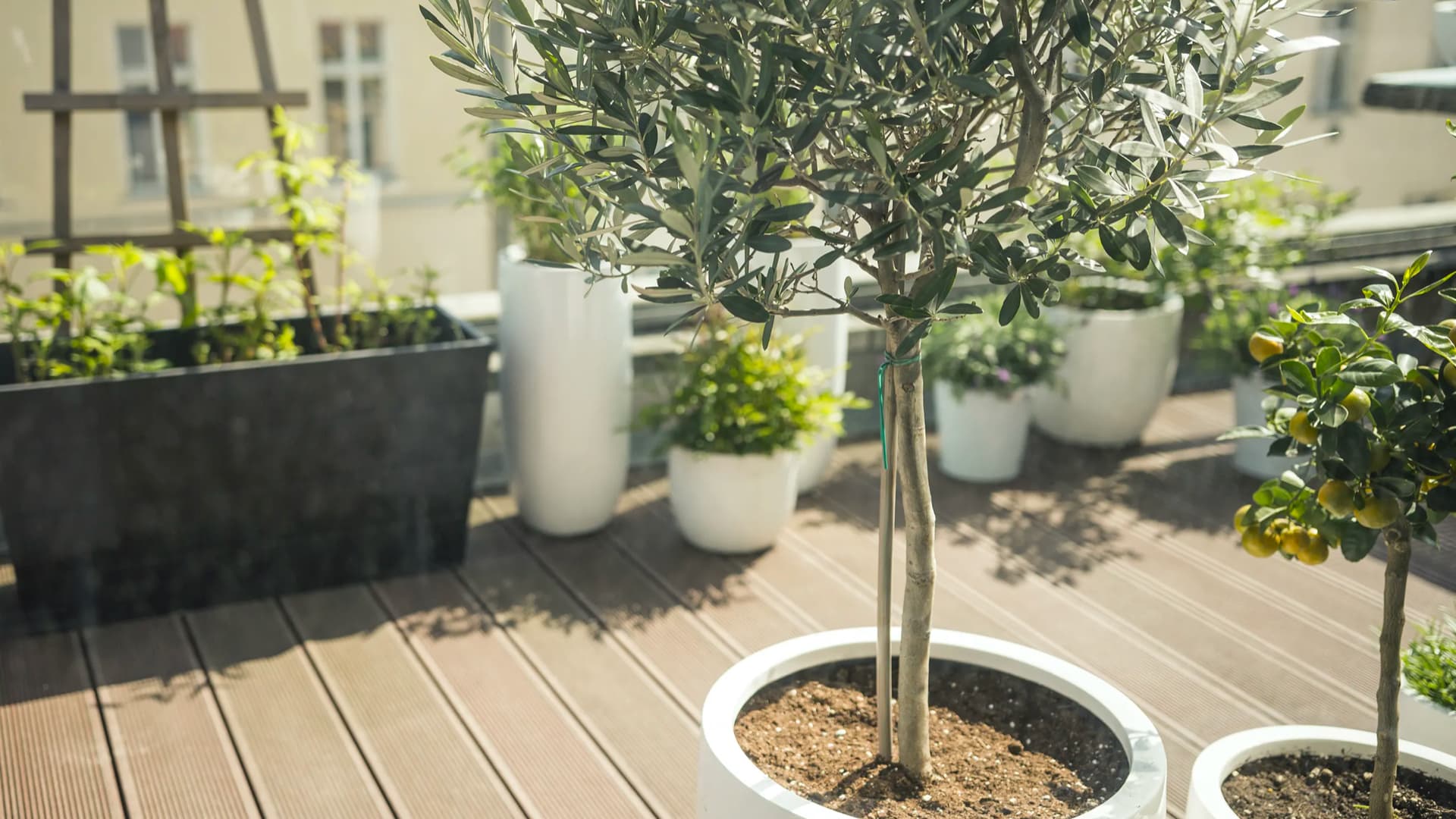Olive tree (Olea europaea) Care Guide and tips
Read through our Olive tree care guide and learn everything you need to know on how to look after Olea europaea.

Olive trees are Mediterranean and ancient evergreen trees with grey-green leathery leaves. Olive trees are a symbol of peace, wealth, wisdom and vitality. Olea europea is hardy and easy to care for but protect from hard frost (below -5°C). They prefer a sunny and sheltered position.
Care tips
- Position: Preferably full sun but will tolerate partial shade.
- Watering: Water regularly but sparingly during growing season. Do not overwater, Olives are fairly drought tolerant plants. There is normally no need to water Olive trees during the winter, only make sure the root ball does not dry out. Protect from excess water during the winter period by covering the pot or plant.
- Hardiness: Hardy but protect from cold drying winds and hard frost (below -5°C). Mature Olive trees can tolerate short temperature drops down to -8°C but make sure the roots don't freeze.
- Pruning: Prune into shape in spring/summer. Well suited to be clipped into topiary shapes such as Olive standards.
- Soil: Well-drained. Fertile. Loam-based. Repot every two to three years.
- Feeding: During growing season top dress sparingly with organic fertiliser or with slow release fertiliser granules. There is no need for plant feed during the winter period. Avoid high concentration of fast acting liquid fertiliser.
Olea europaea Information
- Foliage: Evergreen. Grey-green leathery leaves. Slow-growing.
- Flowers: Small fragrant creamy-white flowers in summer.
- Fruit: Olives should not be eaten directly from tree but need special treatment first. In London the olives may ripen in a sheltered sunny position.
- Life expectancy: 300-600 years but some olive trees can become much older. The oldest olive tree is claimed to be 5000 years old in Chania, Crete.
- Origin: It is believed that Olea europaea has been cultivated in Crete and Syria for more than 5000 years.
- Symbolism: Peace. Wealth. Wisdom. Sacred. Vitality. In the book of Genesis, a dove from the ark brought an olive-branch to Noah to show him that it had found land. In Greek mythology the goddess Athena brought the olive tree to Athens. In a contest between Athena and Poseidon on Mount Olympus on who should protect Athens, Athena won by providing the most beneficial gift to the Athenians, the Olive tree. Poseidon created a salt spring. Winners of the ancient Olympic Games were awarded an olive branch. In Rome defeated armies carried the Olive branch as a sign of peace.
- Olive oil: "Extra Virgin Olive Oil" should be slowly cold pressed (heat from friction will change the oil's properties) and with an acidity level below 0.8%. The oleic acidity level is a measure of the oil's quality. Ideally the olives should have been organically grown. With a good variety of olive tree, great soil and climate conditions, early picking and immediate pressing an acidity level of less than 0.5% is possible. You can find more information on olive growing and olive oils from the International Olive Oil Council.


